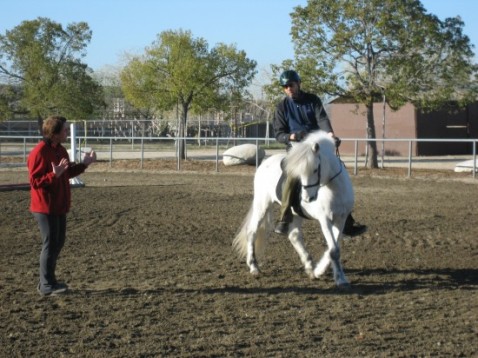
Inspirado #2: Stephen Tobolowsky’s “True Arena”
A wise teacher once told me: “When you read, always ask: What would I steal from this?” Welcome to Inspirado, a new regular series looking at the things I’m stealing from, and why.
In the Known Unknowns #13 (posting later today), I talk about the Four Questions you need to ask and answer in order to really understand your characters. There’s another question that’s crucial to ask, and you need to ask it of yourself:
How Does Your Character Work In The Story You’re Telling?
If you think that’s an obvious or even unnecessary question, I would beg you to look at it again. Maybe you have a great, engaging, complex character. Maybe you also have a terrific story with amazing highs and lows and surprises. But does your character really WORK in that story? Does that story really serve your character? Are they working together to create a magical piece of literature? And do you have any idea how much coffee it took to make me write that last phrase?
I’ve mentioned Stephen Tobolowsky, the actor and writer whose amazing podcast The Tobolowsky Files is a constant source of inspiration for me, in my writing and in my life. In his most recent installment, “The True Arena,” Tobolowsky talks about the importance of understanding the boundaries of where you are right now, not where you imagined or hoped you would be. I’ll let you listen to the title story for yourself, as it’s both difficult to summarize here and beautifully written on its own, but there’s a great story in there about a stage actor Tobolowsky sees in a series of small productions. The actor has taken on the idea of pounding on a table at the same point in every performance.
The first time she does it, it’s spontaneous and felt right. It also gets a great reaction, so she begins doing it every night, regardless of whether it’s actually (in Tobolowsky’s opinion) appropriate to that moment’s performance. Later, the amateur stage crew has set the table slightly off its marks, and when the actor goes to do her big table-pound, she misses the table entirely. She’s not paying attention to the arena she’s in right then, at that moment, only the one she thought she was in the first time she did it.
This happens in writing. You can have wonderful characters and a killer situation, but if they don’t actually work together in the same arena, you are in some serious fucking trouble, hombre. This is particularly common when one is working on a longer piece of writing. You start out with the world’s most amazing story, the one that’s magically gone untold until now. Your characters feel real, and they’re just perfect for the situation. And then comes The Drift.
The Drift is when your characters and story begin slooowly moving apart. I see a lot of student writing, and there almost always comes a point where the student, with head in hands, says, “I don’t know anymore. I’ve lost the thread.” But not exactly. They haven’t lost the plot, not usually. And they still have characters. What they’ve lost is the perspective. And this comes mainly from not being 100% aware of who your characters are and what that has to do with the story that’s being told. It’s great to know what your character wore to school in the eighth grade, but if you don’t know the almost embarrassingly basic, primal things that drive them (and hinder them), you will not really know your character. And if you don’t know your character, you will not know the True Arena of their story.
To put it another way: If you did a Venn diagram with the details of your story in one circle and the Four Questions about your character in the other, what’s in the middle? That’s your True Arena.

